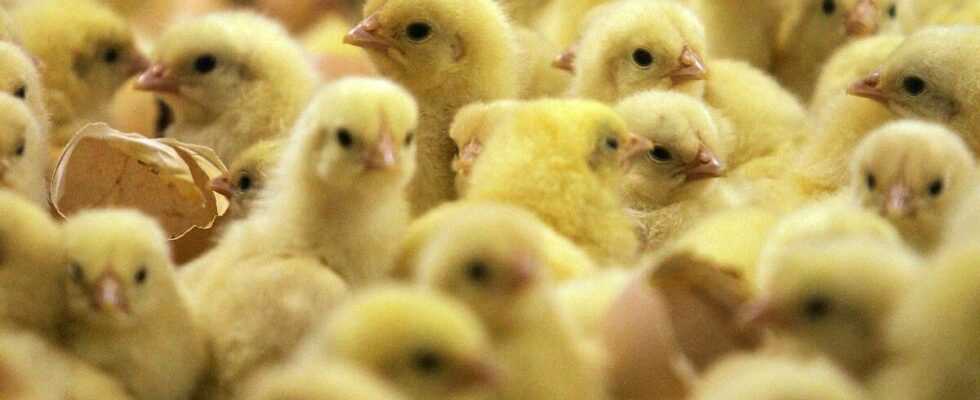A decision long awaited and still postponed for the end of the year. The elimination of male chicks at birth in the laying hen sector is prohibited by the government, which gives French hatcheries until the end of 2022 to change their practices, according to a decree published this Sunday in the Official newspaper.
This measure, demanded in particular by animal rights associations, had been expected for several years in France, the leading egg producer in Europe. It is estimated that around 300 million male chicks are killed each year in the European Union, including 50 million in France.
Ovosexing and egg elimination
Five hatcheries specializing in the supply of laying hens to breeders are concerned. Some have started to install machines to determine the sex of embryos in the egg (ovosexing) – and thus to eliminate the males before hatching.
According to the decree, which provides for a fine for offenders, hatcheries will have to justify during the year that they have indeed ordered ovosexing machines and started work to install them. These materials “allowing the sex of the embryo to be determined no later than the fifteenth day of incubation” out of 21 must work “no later than December 31, 2022”.
“It went a little faster than we wanted“, reacted the president of the interprofession of the egg (CNPO), Philippe Juven. “As these are new technologies, there are adjustments to be made on these installations. Companies will do their besthe added, without being able to assure that the hatcheries will be able to ovosex all the chicks by the end of the year.
Manufacturers still want to negotiate deadlines
Philippe Juven is already preparing the ground for failure to meet deadlines. Considering the “good will” of the sector, he estimates that there will be a “understanding on the part of the public authorities” if deadlines are not met. The debate of yet in the air for a long time. In 2019, with a view to accelerating the search for alternative options by companies, the Minister of Agriculture at the time, Didier Guillaume, had promised that this practice would be prohibited by the end of 2021. Minister Julien Denormandie had finally assured in the summer of 2021 that 2022 would be “the year of the end of the grinding and gassing of male chicks in France”.
The elimination of male chicks has been prohibited since the beginning of the year in Germany, where the ovosexing machines have been developed with which French hatcheries must now be equipped. The State must subsidize part of the hatchery investments, amounting to 15 million euros. As for the ovosexing service, it will make future hens much more expensive. An additional annual cost initially estimated by the profession at 64 million euros, then reduced to 47 million euros.
The sector is considering ways to pass on this additional cost to consumers, via a contribution levied on the eggs sold. The ban on the slaughter of chicks does not concern lines intended for breeding, nor the specific animal feed market – when the chicks are used to feed reptiles or birds of prey, for example.
